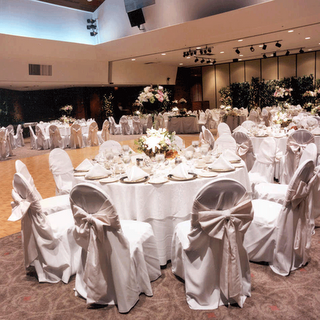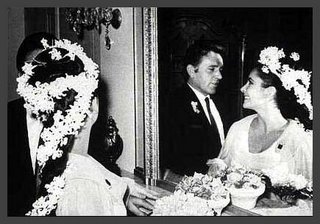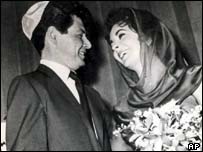
How would I make a documentary in terms of capturing the topic, and what issues might I encounter in the attempt to capture it?
I would like to make my documentary on full-time Christian missionaries, documenting their work and their stories. This project would be considerably expensive and time-consuming, as I would like to interview individuals and teams on location around the world. Missionaries always have a lot of stories to tell, because their work is very diverse, interesting, stressful, underpaid, and sometimes life-threatening.
My documentary would highlight the work of several missionaries from a range of countries and cultures regions and representing different aspects of missions work. Some of the missionaries I have met and/or worked with in my past travels are doing the following in countries around the world:
Running orphanages in developing countries
Bringing food, supplies, and Christian literature into remote areas by airplane
Starting churches in countries after Communism fell
Distributing the Book of Hope (The gospels and Acts 1-2 in magazine format) through public and private schools in the U.S. as well as nations all around the world, training local churches how to do the same as well as follow up with those that show interest at the concerts they coordinate
Working secular jobs in a foreign country, such as starting Internet Café’s with the intention to get to know people in the community
Teaching English as a second language
Leading short-term youth and construction trips
Ministering to impoverished individuals and families and setting up treatment centers for those dealing with addictions
Training pastors and other Christians in Biblical studies where Bible schools are not available
Starting and working with churches, building relationships with people, showing God’s love by not only providing spiritual support but by doing their best to meet practical needs as well
What is your intended or key point you want to convey to your audience, and what do you want them to learn from viewing the documentary?
This documentary would serve to educate people about the intense and sacrificial lives that missionaries around the world lead, focusing on the fact that many of them not only serve to meet the spiritual needs of the people they work with, but also give long hours and as many resources that they can get their hands on to help people who have other physical and emotional needs as well. The ultimate purpose would be to raise the awareness of missionary work in hopes that people who agree with what the missionaries are doing will support them financially. This will enable the missionaries to spend less time raising support and more time to work effectively and efficiently with the people and materials at hand.
Who would you want to interview, and what questions would you ask?
As this would be an exhaustive documentary, most likely done in a series, perhaps one section for each “brand” of missionaries (see list above), I would like to interview a number of individuals in addition to the missionaries themselves. I would interview entire missionary families, the husbands, wives, and children that are working together with missions in foreign countries, and I’d not only ask questions about their particular line of missions work, but things about their daily lives as well, where they live, what they eat, how they shop, how they have learned the language, etc. I would ask for them to tell stories about the impact their work as made, the risks and disappointments they’ve faced, and how their work has impacted their home and family lives. I would also select some of the family members left back home who might be either supportive or nervous about the decision of the missionary to do missions work. Pastors, teachers, and members of the community who know the missionaries would also be interviewed, and testimonies of people who have been helped by the work would be included as well. I would ask what needs they have as a family and for the work that they have a vision to complete.
What activities or practices would you select to include?
I would include whatever makes each missionary’s work unique, if it were a missionary pilot I was featuring, I would try to go along on a supplies drop and if possible, would interview (with interpreters, if necessary) some of the people who have benefited by his or her service. I think that it would be important to present the fact that missions work is very different from a 9 – 5 job, because missions so often encompasses one’s entire life, so it would be helpful to do the interviews in the homes of the missionaries or on site at the places they work with, if possible. Thus said, I would still prefer to focus more on the results of the missions work, the success stories, disappointments, and even miracles that they encounter on a regular basis.
What difficulties you anticipate in creating an authentic, realistic portrayal?
Some missionary work is life-threatening in countries where Christianity is not tolerated, so the missionaries take on regular jobs and build relationships with people before talking about Jesus. It would be difficult to interview these Christians or the people that they’re working with because it could mean imprisonment or even death for the people involved if their true purpose was found out. Language barriers can be difficult in places where English is not spoken, if we were to interview people from different countries, we may have to hire interpreters as the missionaries might not be the appropriate person to have interpret if we’re going to be interviewing people and asking them about how they feel the missionary has helped or affected their lives. Another difficulty is the delicate nature of a lot of missions work, especially those that focus on people with addictions or other sensitive problems, it might be difficult to find people to interview, and the missionary might be restricted in how much information he can give about what he does.
Example documentaries
Beyond the Gates of Splendor (2002), Starring Steve Saint and Carmela, directed by Jim Hanon.
The story of Jim Elisabeth, Nate Saint, and others working as missionaries in Ecuador, their mission, their murders, and how their families continued to work with the Waodani people. Includes "eyewitness accounts by American and Waodani alike," home movie footage, photographs...
William Carey: God's Plodder. A 26-minute documentary on William Carey written by Dr. James Ray. Filmed on location in England. Chattanooga, Tenn.: Baptist International Missions, Inc., ©1992. Available from BIMI, P.O. Box 9215, Chattanooga, Tenn. 37412. (423) 344-5050.
Born in England, William Carey (1761-1834) was a Baptist missionary to India. A pastor before going to the mission field, he spent an active forty-one years serving the Lord in India, including translating the Scriptures. Carey never returned to England. (information from http://www.wholesomewords.org/biography/biorpcarey.html)
The Tailenders
by Adele Horne
The Tailenders documentary, Written, Produced And Directed By Adele Horne
The Tailenders is a captivating look at a missionary group's use of ultra-low-tech audio devices to evangelize indigenous communities facing crises caused by global economic forces. Global Recordings Network, founded in Los Angeles in 1939, has produced audio versions of Bible stories in over 5,500 languages, and aims to record in every language on earth. The film traces their journeys in the Solomon Islands, Mexico, India and the United States, where they distribute the recordings, along with hand-wind audio players, to "the Tailenders": the last people to be reached by worldwide evangelism. 72 minutes • DVD (information taken from http://www.newday.com/films/tailenders.html)

























